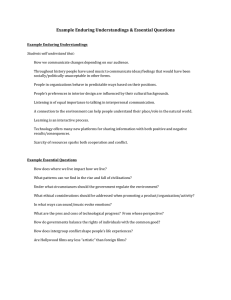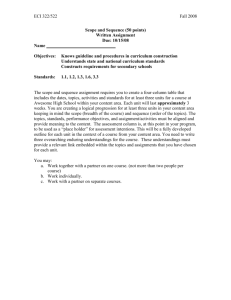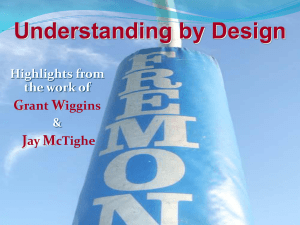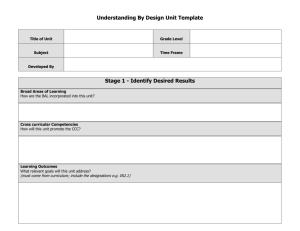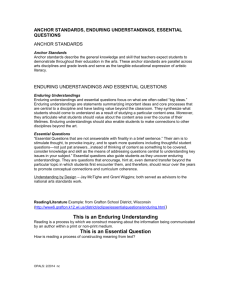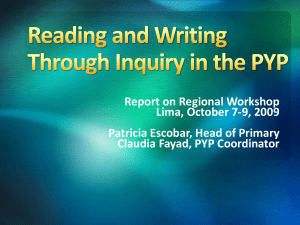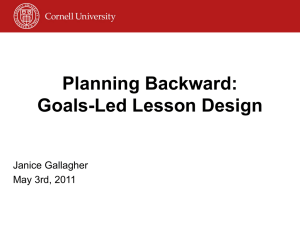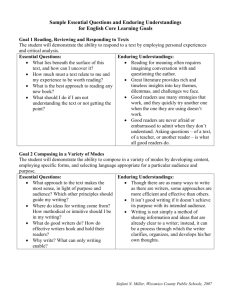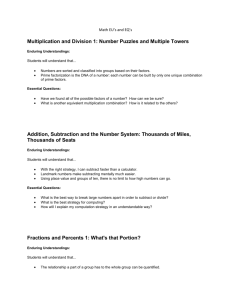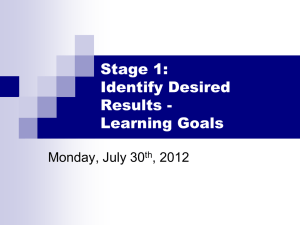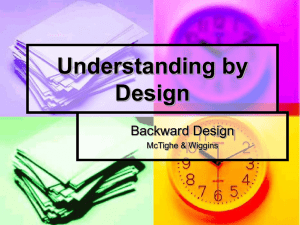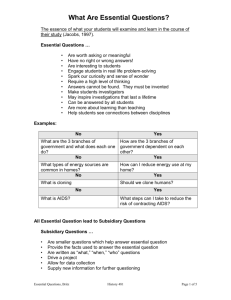Helpful Definitions - Campbell County Schools
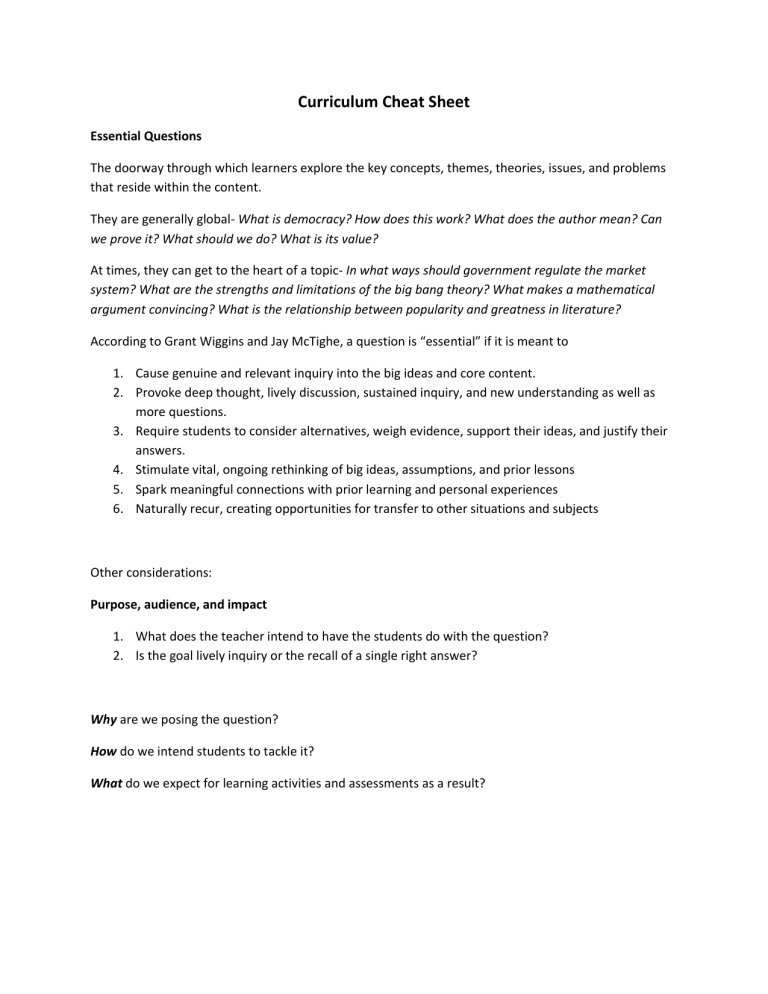
Curriculum Cheat Sheet
Essential Questions
The doorway through which learners explore the key concepts, themes, theories, issues, and problems that reside within the content.
They are generally global- What is democracy? How does this work? What does the author mean? Can we prove it? What should we do? What is its value?
At times, they can get to the heart of a topic- In what ways should government regulate the market system? What are the strengths and limitations of the big bang theory? What makes a mathematical argument convincing? What is the relationship between popularity and greatness in literature?
According to Grant Wiggins and Jay McTighe, a question is “essential” if it is meant to
1.
Cause genuine and relevant inquiry into the big ideas and core content.
2.
Provoke deep thought, lively discussion, sustained inquiry, and new understanding as well as more questions.
3.
Require students to consider alternatives, weigh evidence, support their ideas, and justify their answers.
4.
Stimulate vital, ongoing rethinking of big ideas, assumptions, and prior lessons
5.
Spark meaningful connections with prior learning and personal experiences
6.
Naturally recur, creating opportunities for transfer to other situations and subjects
Other considerations:
Purpose, audience, and impact
1.
What does the teacher intend to have the students do with the question?
2.
Is the goal lively inquiry or the recall of a single right answer?
Why are we posing the question?
How do we intend students to tackle it?
What do we expect for learning activities and assessments as a result?
Enduring Understandings
Key features of Enduring Understandings
Enduring understandings use discrete facts or skills to focus on larger concepts, principles, or processes.
Ultimately, they are applicable to new situations within or beyond the subject.
Understanding is best acquired by “uncovering” and “doing” the subject. Uncovering refers to inductive development and co-constructed learning with students. Doing refers to using ideas in realistic situations and real-world problems. Enduring understandings should revolve around common misconceptions that students will grapple with during a unit or lesson and provide focus for instruction
Enduring Understandings summarize specific skills and become part of a flexible “tool belt” students have access to in order to solve problems or apply to specific learning situations, but only after the students determine the correct tools to use in those situations. For example, in science, a student may be given the task to prove a hypothesis. They should have been given specific skills by which to attack their experiment, some skills may not be applicable to all hypothesis, but the enduring understanding is that they use skills such as multistep problem solving, sequential understanding, generating more specific hypothesis and so on, but those are all part of the context of proving the hypothesis.
Think of Enduring Understandings as the answers to the “so what’s” or the “big ideas” and generalizations about a subject.
According to Lynn Erickson
Understandings are:
“…concepts stated in a relationship. Universal generalizations have the same characteristics as a concept:
Broad and abstract
Universal in application
Generally timeless- carry through the ages
Represented by different examples
Examples:
“Written laws specify the limits of a government’s power.”
“The same letter combinations can produce different sounds, words, and meanings.”
“Producers of goods and services are influenced by natural, human, and capital resources.”
“A muscle that contracts through its full range of motion will generate more force.”
“A triangle with three equal sides has three equal sides has three equal angles.”
Essential Skills
Essential Skills are those concepts, knowledge and understandings that are important for students to know and do. Course level Essential Skills are broad, Unit Skills more focused, Lesson Skills are even more focused, but those focused skills should always be tied to the more broad unit and course skills.
Essential Skills can often be found in standards documents or core content or may be discipline specific.
Examples of Essential Skills:
English/Language Arts: Demonstrate the ability to read and understand text
Writing: Develop organized, well-reasoned, supported, and focused communications
Math: Produce evidence, such as graphs, data, or mathematical models, to obtain and verify a solution
Speaking and Listening: Listen actively and understand verbal and non-verbal communication
Social Studies: Perform civic and community responsibilities essential to living in a democracy
Science: Understand how to conduct and design an experiment to prove a hypothesis
Essential skills provide a list of knowledge based and demonstrable items that determine the overall focus and intent of a particular course, lesson, or activity.
Course level essential skills are broad: “Students can acquire the knowledge and skills for movement that provide the foundations for enjoyment, continued social development, and access to a physically active lifestyle”
Unit level essential skills are more focused: “Students develop an understanding of the forces of motion, develop their own questions, and perform independent investigations.”
Topic, Lesson and activity essential skills are yet more focused: “Multiplying multi-digit numbers.”
One thing that Essential Skills are not is performance indicators that are sometimes found in standards.
Performance indicators are possible assessment evidence. Essential skills provide a roadmap for performance indicators and assessments.
Think learning targets:
We break down state and national standards into teacher and student friendly language. Those become our Course level goals, we define specific focus learning targets for units, and then each day, learning targets are chosen for specific lessons, but they are all tied back to the original standards.
While not a perfect analogy, the concept is similar with Essential Skills: We define what skills students should have by the end of the year, we design courses that allow students to be introduced to, practice, and demonstrate mastery of skills in a particular order because we cannot teach all skills in one day
